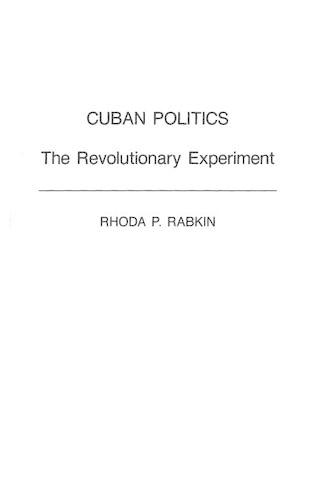
Cuban Politics: The Revolutionary Experiment
(Hardback)
Publishing Details
Cuban Politics: The Revolutionary Experiment
By (Author) Rhoda Rabkin
Bloomsbury Publishing PLC
Praeger Publishers Inc
20th November 1990
United States
Classifications
Tertiary Education
Non Fiction
Left-of-centre democratic ideologies and movements
Revolutionary groups and movements
Revolutions, uprisings, rebellions
972.91064
Physical Properties
Hardback
256
Width 156mm, Height 235mm
567g
Description
The Cuban Revolution presents a mixed record of achievements and failures. In this comprehensive study of Cuban politics, Rhoda Rabkin examines the institutions, policies and performance of revolutionary Cuba. The study concisely addresses the major issues debated by scholars concerning the Cuban revolutionary experience. These include: the development impasse of pre-revolutionary Cuba, rates of revolutionary socio-economic progress, elite factionalism, the role of the military, succession politics, respect for human rights and the relevance of the Cuban model to other developing countries. Rabkin analyzes Cuban efforts to reconcile revolutionary leadership (including the special role of Fidel Castro) with popular participation in institutions of government and mass organizations. The study also analyzes the likely implications of the Gorbachev era for Cuban socialism. The inclusion of source references to the scholarly literature allows readers to pursue controversial issues in greater depth. In a field often dominated by polemics, Rabkin aims to provide her readers with an objective synthesis of contemporary scholarship on the Cuban Revolution. Chapters cover: background to the revolution; communism Fidel-style (1959-1970); institutions and policy (1970-1986); the socialist economic system; Cuban foreign policy; the rectification period (1986 to the present); and a concluding assessment of the Cuban revolutionary socialist development model.
Author Bio
RHODA P. RABKIN teaches U.S.-Latin American relations at Cornell University. Her writings on Cuban politics and inter-American relations have appeared in various anthologies and scholarly journals.
